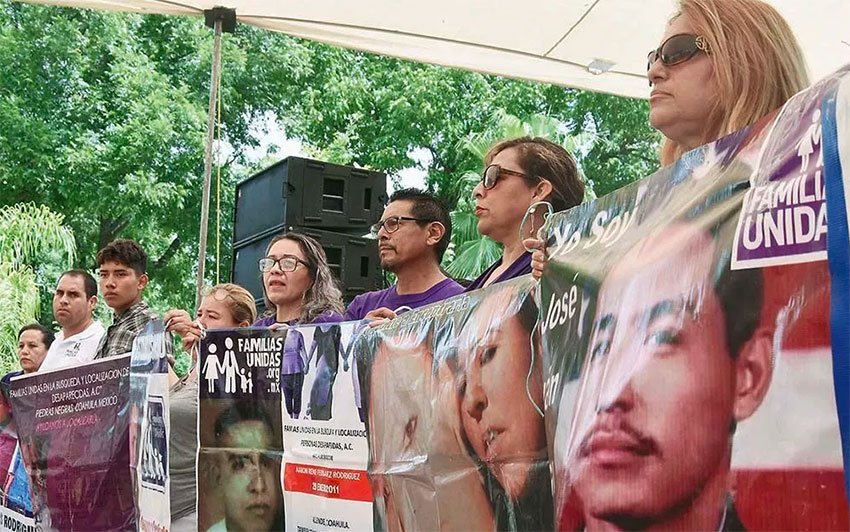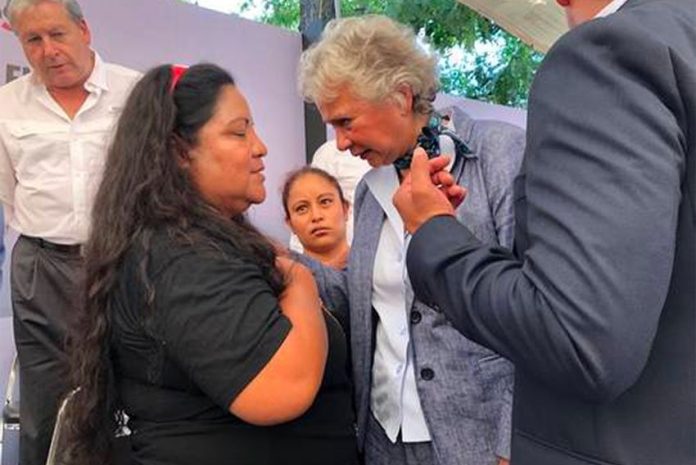The federal government has apologized for its role in allowing a 2011 massacre in the city of Allende, Coahuila, when as many as 300 people were killed or disappeared at the hands of the Zetas cartel.
Interior Secretary Olga Sánchez Cordero offered the apology at an event Thursday in Allende, which was also attended by Coahuila Governor Miguel Ángel Riquelme Solís and Allende Mayor Antero Alvarado Flores, who also offered apologies on behalf of their governments.
“I hope this apology will allow us to heal, in some way, and prevent this type of event, which has hurt us so much as a society, from happening again,” said Sánchez Cordero.
Hundreds of people attended the event, which was held in the main square of Allende in front of the municipal palace.
The public apology came after a March 2018 report on the massacre by the National Human Rights Commission, which found that authorities were implicated in the events, and recommended a public apology from the government.

In the presence of family members of people who were killed and disappeared in the massacre, Sánchez acknowledged that local police participated in the disappearances, while higher-level officials had advance knowledge of the Zetas’ plan and did nothing to prevent it.
“High-level authorities knew that this criminal organization was planning an attack in Allende, and they made an agreement that they would not interfere,” she said. “These authorities, while the massacre was taking place, in spite of the fact that it’s their responsibility to protect the physical integrity of the residents, in spite of the calls for help, they made the decision not to intervene.”
But for some Allende residents who lost loved ones in the massacre, the government apology wasn’t enough. Alejandra Hernández, whose father was kidnapped, told La Jornada that she didn’t see much use in an apology eight years after the fact.
“They should have come before,” she said. “Now, they’re asking for forgiveness, but when the problems were going on, they never showed up.”
The massacre took place over three days between March 18 and 20, 2011. It was triggered by two Zeta-linked traffickers from Allende, Hector Moreno Villanueva and José Luis Garza Gaytan, becoming protected witnesses in the United States.
The Zetas responded by killing family members, friends and employees of the two men. Hernández’ father was targeted because he had been an employee of Garza.
Source: Reforma (sp), La Jornada (sp)
